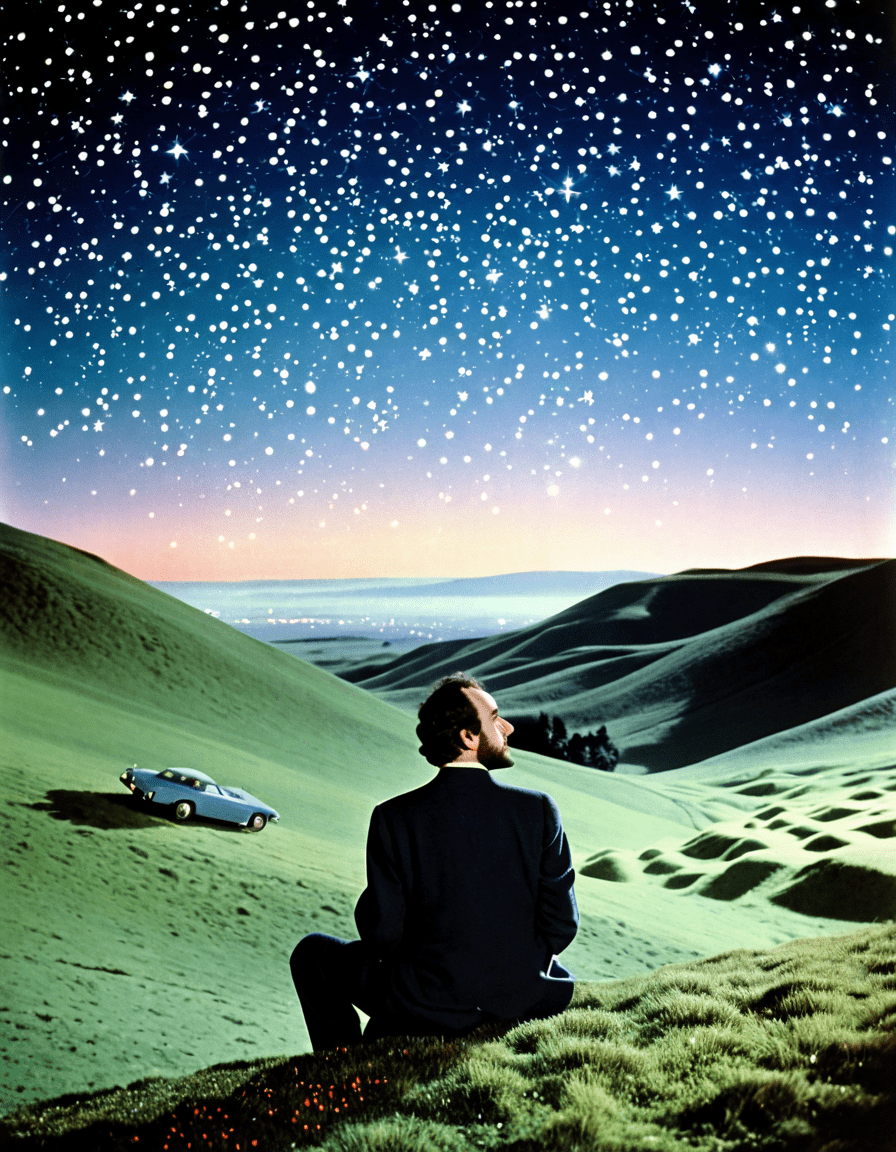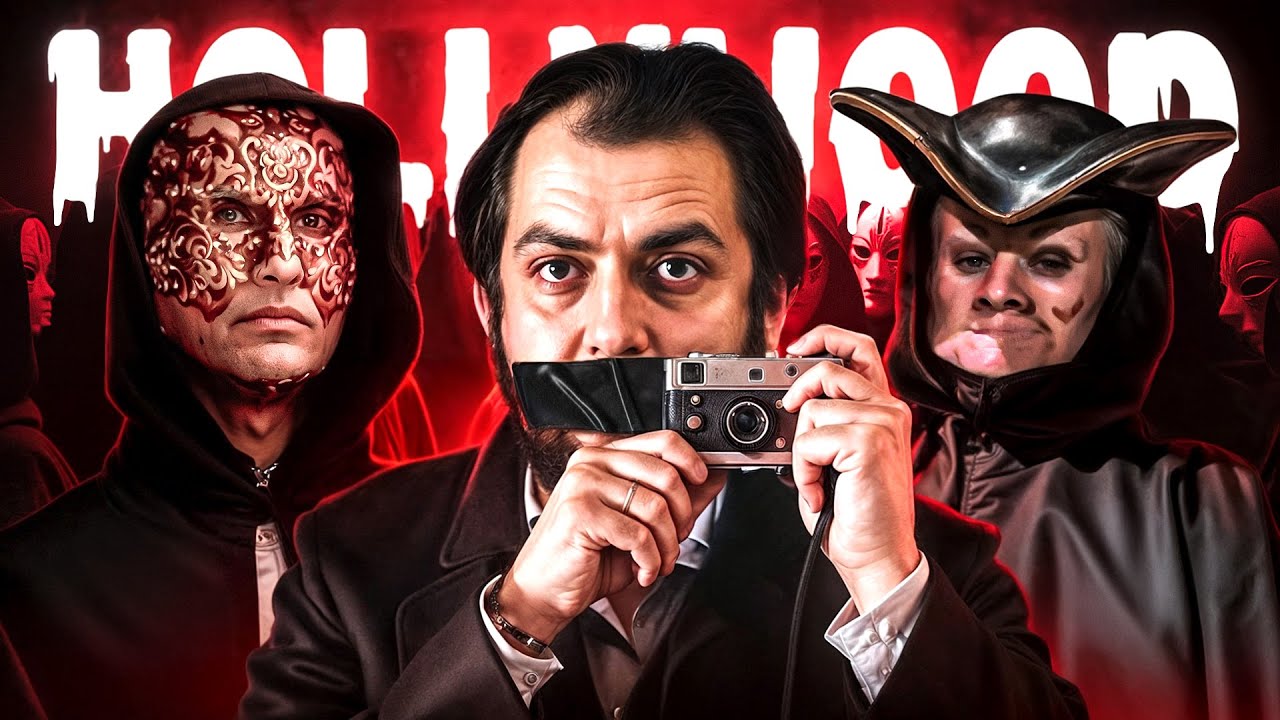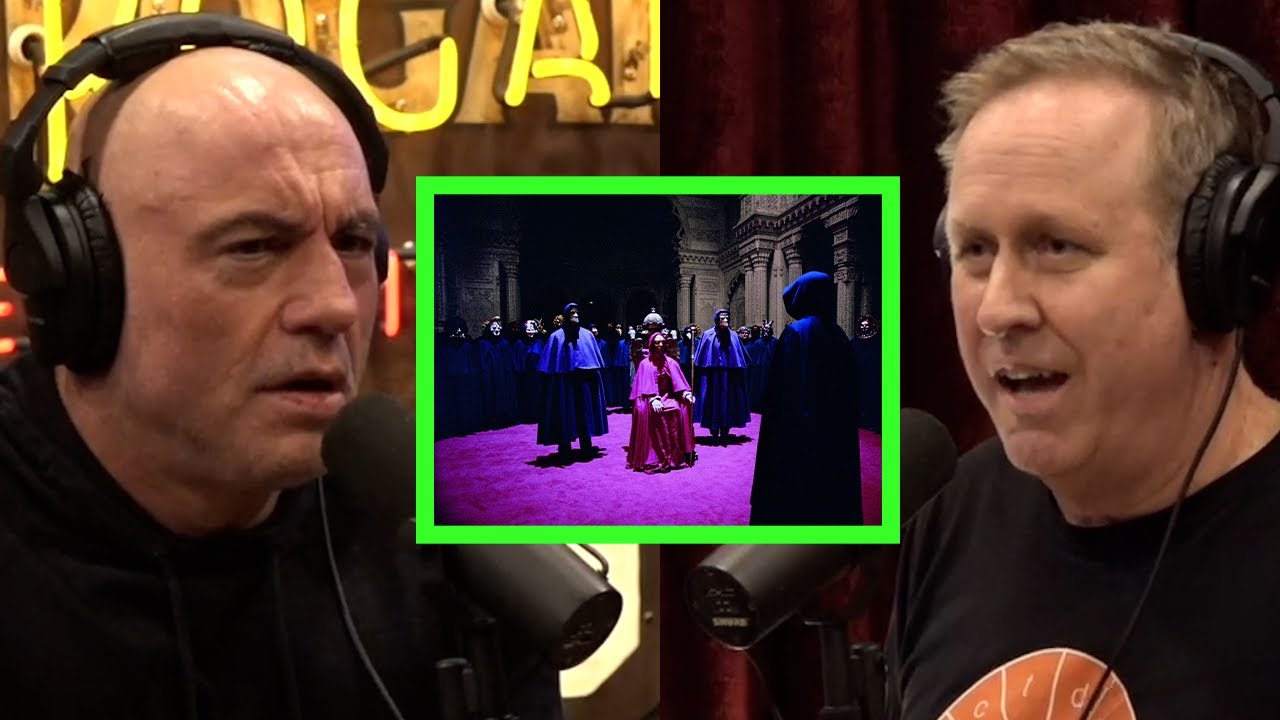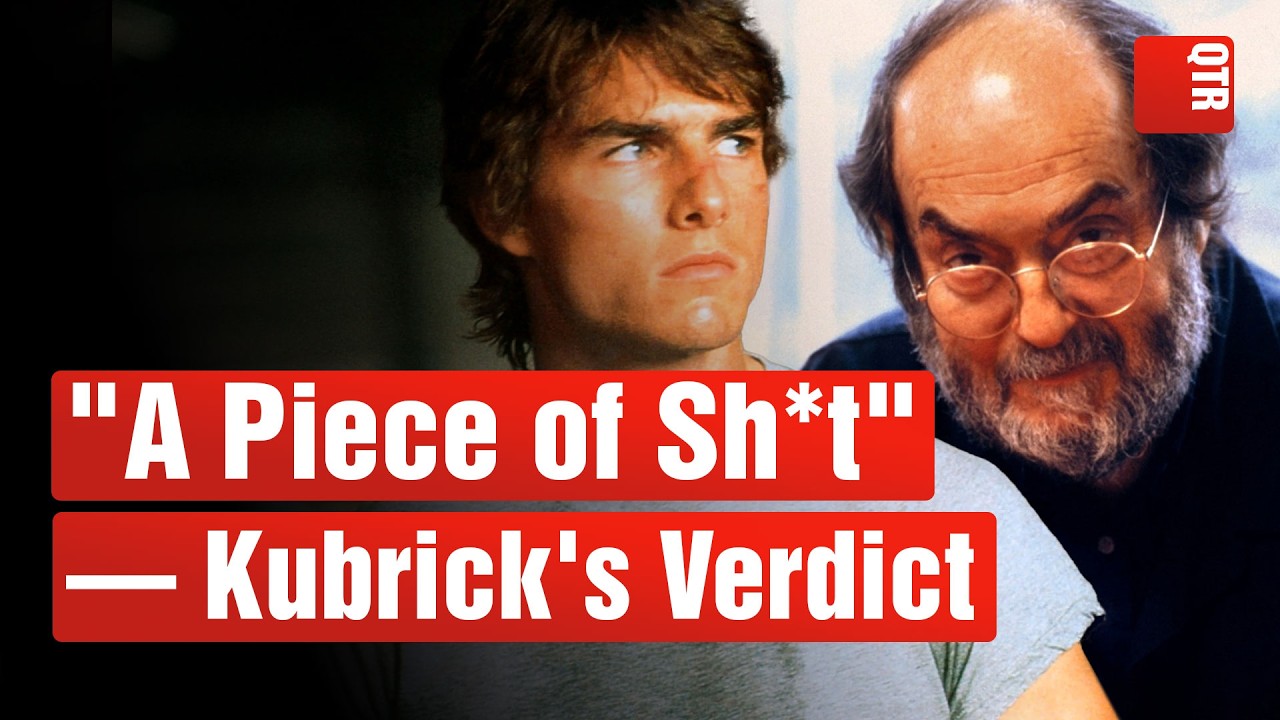When you think of cinematic geniuses, Stanley Kubrick stands tall among the giants. His films boast a distinctive style and rich storytelling, resonating deeply with movie buffs across generations. Kubrick’s influence on the film industry is undeniable, setting a benchmark that filmmakers still aspire to reach today. In this article, we will dive into seven of his most unforgettable films, showcasing the artistic brilliance that continues to captivate all of us who are passionate about cinema.
7 Unforgettable Films That Showcase Stanley Kubrick’s Genius
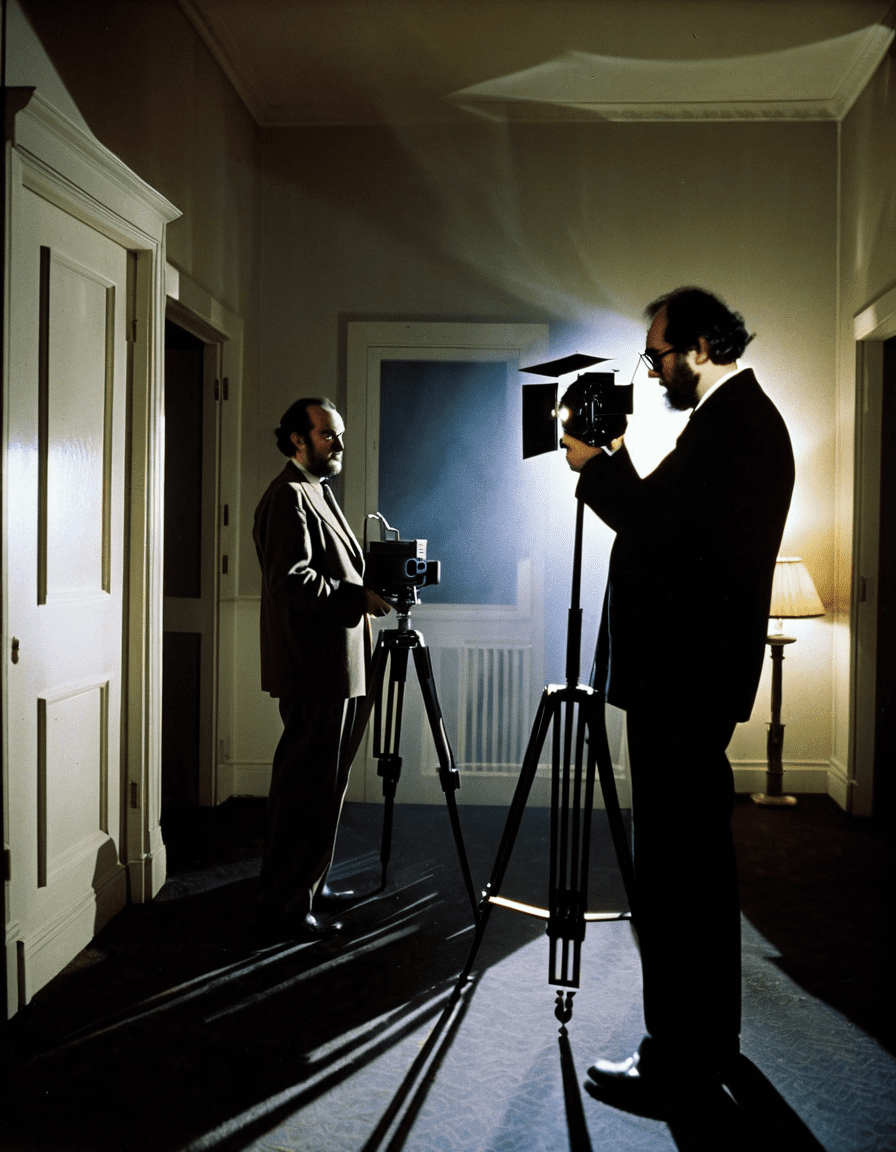
1. 2001: A Space Odyssey (1968)
Ah, 2001: A Space Odyssey. This film is a game changer in science fiction and a pivotal moment in film history. Its stunning visuals and innovative special effects opened a doorway to a universe of possibilities that filmmakers still explore today. Kubrick’s collaboration with composer Richard Strauss transformed the film’s narrative into a breathtaking visual symphony, elevating it into the realm of artistic excellence.
The film isn’t just about space travel; it invites us to ponder our place in the universe. Themes like evolution and artificial intelligence make us reflect deeply on our future. It’s no wonder this masterpiece has sparked countless debates and analyses among fans and scholars alike.
2. A Clockwork Orange (1971)
In a world filled with ethics and free will debates, A Clockwork Orange stands as a stark, satirical exploration of societal control. The film’s visual style captures the viewer’s attention, while Malcolm McDowell delivers a performance that is both magnetic and chilling as Alex. Kubrick’s portrayal of violence is provocative, prompting audiences to confront their own perceptions of morality.
He used Beethoven’s Ninth Symphony not just for thematic enhancement, but to manipulate viewer emotions. Every moment in this film is meticulously crafted to make you feel uncomfortable while reflecting on the broader themes of power and choice.
3. The Shining (1980)
When we delve into psychological horror, The Shining is a masterpiece that haunts every frame. Jack Nicholson’s portrayal of Jack Torrance is nothing short of legendary; he brings a chilling intensity to the character that lingers long after the credits roll. Kubrick’s craftsmanship excels in building an atmosphere of dread with his slow pacing and breathtaking visuals.
The film also illustrates Kubrick’s ability to work with actors. Shelley Duvall’s performance adds genuine vulnerability, making the descent into madness palpable. Fans continue to analyze its rich symbolism, ensuring The Shining stays relevant in the conversation about psychological horror.
4. Full Metal Jacket (1987)
Full Metal Jacket holds a mirror to the grim realities of the Vietnam War. Kubrick’s exploration of the dehumanization of soldiers is starkly authentic, aided by his enlistment of real-life Marine Corps veterans for crucial scenes. This dual narrative structure—showcasing boot camp brutality followed by battlefield chaos—forces viewers to question the nature of warfare.
Matthew Modine’s character, Joker, grapples with the conflicting ideals of duty and morality. This film is as much about internal conflict as it is about external chaos, standing as a powerful anti-war statement that resonates with audiences even today.
5. Dr. Strangelove or: How I Learned to Stop Worrying and Love the Bomb (1964)
If you are in the mood for a good laugh wrapped in political commentary, look no further than Dr. Strangelove. Kubrick’s satirical take on nuclear warfare is both hilarious and disturbing. With Peter Sellers playing multiple roles, including the quirky Dr. Strangelove, the film captures the absurdity of the Cold War era.
This film gracefully treads the line between dark humor and poignant critique, allowing viewers to reflect on themes of human folly in a terrifying context. The laugh-out-loud moments blend seamlessly with serious contemplation, making it a timeless classic.
6. Spartacus (1960)
Spartacus serves as a glorious historical drama packed with action and profound themes. Kubrick melds grand storytelling with personal narratives, showcasing Kirk Douglas’s strong performance as the titular character fighting against tyranny. The film issues a powerful call for courage and rebellion, resonating with audiences and inspiring conversations about freedom.
Intriguingly, the original role was meant for Robert Mitchum. Yet, the casting of Douglas turned out to be serendipitous, breathing life into this film. It’s a reminder of how collaborative efforts in filmmaking can shape narratives in unexpected ways.
7. Paths of Glory (1957)
In Paths of Glory, Kubrick shines a light on the moral dilemmas posed by military structures and the consequences of blind obedience. Kirk Douglas’s Colonel Dax stands as a powerful figure against injustice, challenging the established norms. The stark cinematography amplifies the film’s themes, pushing boundaries and sparking conversations on honor in warfare.
This anti-war classic musters a compelling critique of the military hierarchy, provoking thought about accountability and ethical decision-making. Kubrick’s storytelling compels viewers to reflect on the human cost of war, ensuring its relevance in the cinematic landscape.
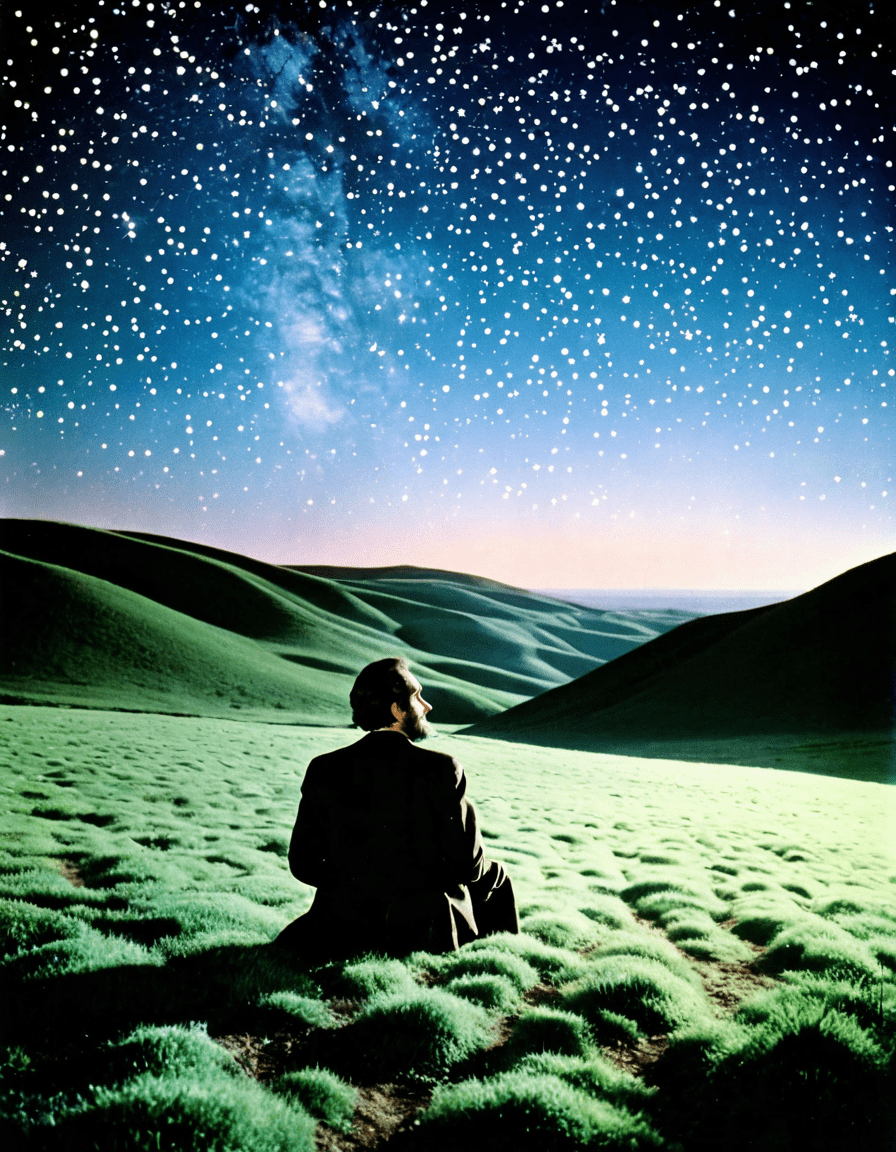
The Influence of Stanley Kubrick: An Enduring Legacy in Cinema
Kubrick’s influence isn’t confined to just his films; it extends far and wide across generations. Directors like Christopher Nolan, Martin Scorsese, and the Coen Brothers openly admire his work. His exploration of complex themes and awe-inspiring craftsmanship serves as an ongoing source of inspiration, continuously captivating new audiences.
Actors like John Malkovich have credited Kubrick with profoundly impacting their careers. His intense directing style urged actors to push their limits, yielding performances that audiences remember for years. The bar he set in cinematic excellence has left an indelible mark on Hollywood.
As new filmmakers emerge, Kubrick’s innovative techniques are studied and revered in film schools around the globe. His ability to manipulate the audience and provoke thought ensures that his films won’t see the dust of obscurity. With each new generation, Kubrick’s legacy lives on, encouraging all of us to explore the art of storytelling in its vastness.
In the tapestry of cinematic history, Stanley Kubrick is a shining star. His unique storytelling and directorial prowess have carved out a place for him as a luminary in film, inspiring both enthusiasts and creators alike to delve into the rich, diverse possibilities of cinema. The masterpieces he left behind not only entertain but challenge us, making him a truly unforgettable figure in film history.
Whether you’re streaming his films or discussing his influence with friends over Canyon Coffee, Stanley Kubrick remains a cinematic titan whose brilliance will always be celebrated.
kubrick: A Master of Cinema’s Unforgettable Brilliance
The Genius Behind the Camera
Stanley kubrick is often regarded as one of the greatest filmmakers ever, and for good reason! His films, from 2001: A Space Odyssey to A Clockwork Orange, showcase a visionary craft that reshaped the cinematic landscape. Did you know kubrick was a big fan of chess? This strategic passion reflected in his films’ intricate storytelling, drawing viewers into carefully constructed narratives. Speaking of strategy, little fun facts like the amazing parallel between kubrick and celebrity pets, like those in the Littlest pet shop, might surprise fans! Even in Hollywood, those wee critters seem to have more than a passing influence.
A Love for Perfection
kubrick was famously relentless about his work; he often went through numerous takes to get a single scene just right. For example, the infamous scene from The Shining required 127 takes! Actors like Michael Biehn, known for his iconic roles in tense thrillers, probably understood this drive for perfection all too well. Not to mention, kubrick’s distinct style has inspired countless filmmakers to try their hand at a unique vision, much like how Liam Coen is putting his own twist on storytelling today.
Influences and Inspirations
Kubrick’s work didn’t exist in a vacuum. He had his share of inspirations, including influential figures like Maureen Reagan, who often shaped narratives of her time. Fans of animation can see echoes of kubrick’s style in contemporary works, where the artistry and attention to detail can sometimes resemble a well-crafted cartoon, like those found in beloved littlest pet shop adventures. And let’s not forget legendary performers like Raven Symoné, who have absorbed the artistic sensibilities that filmmakers like kubrick have infused into their work, proving that cinema’s influence stretches across generations.
In conclusion, kubrick’s brilliance is not just in his films but also in how he inspires others. His legacy continues to live on, reminding us that each frame is a doorway to new ideas and stories waiting to unfold. So, the next time you catch a kubrick classic, think about how his meticulous craft has shaped not just cinema, but the entire entertainment landscape!
